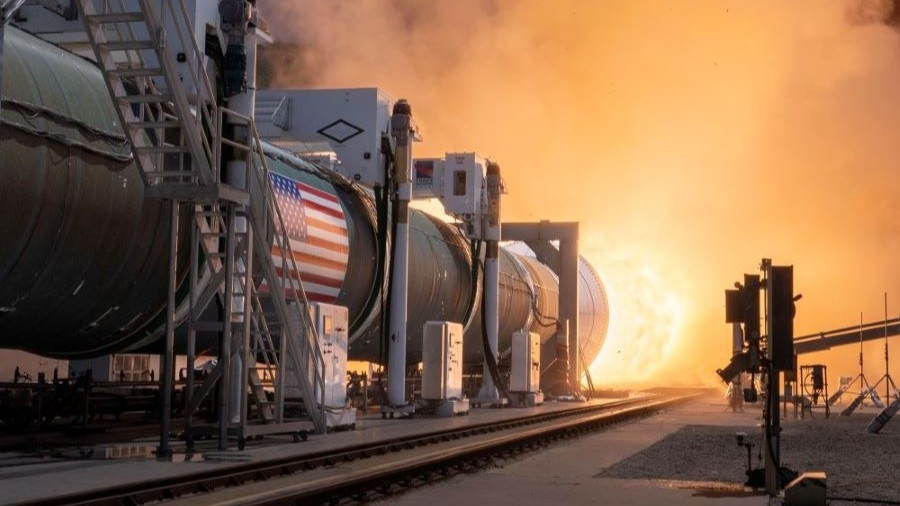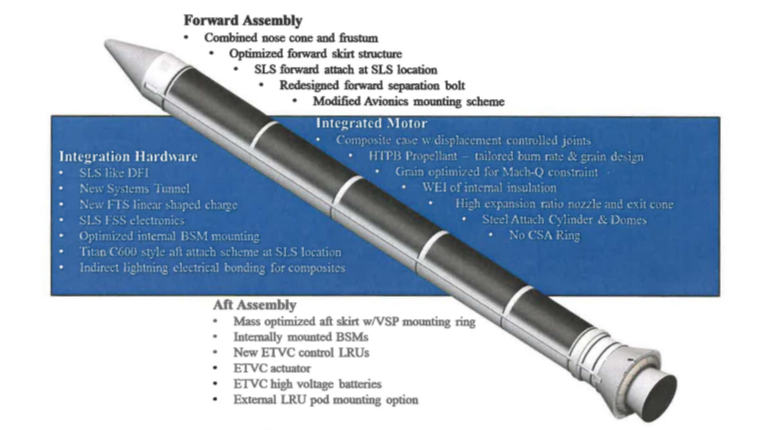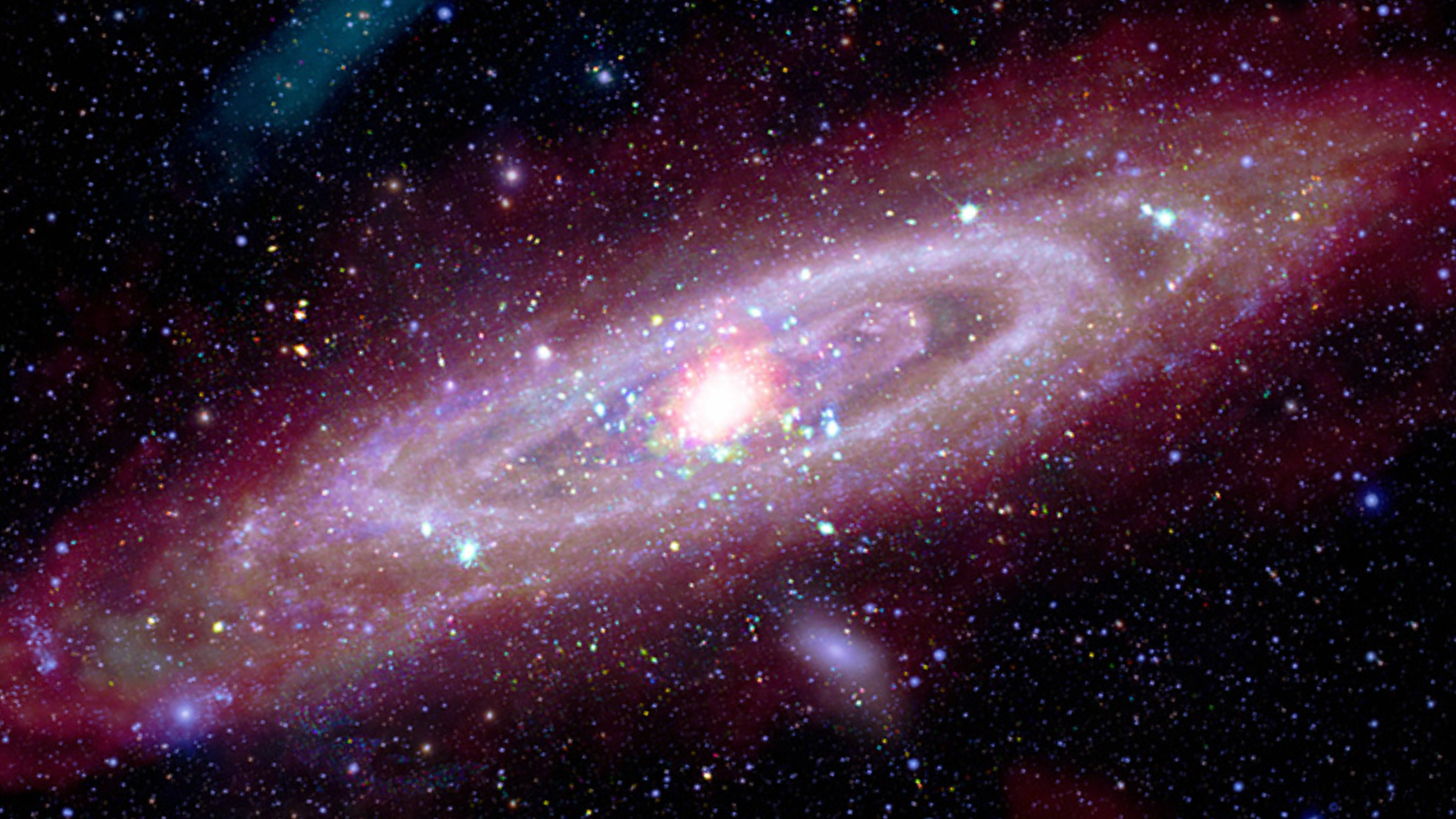Nozzle blows off rocket booster during test for NASA's Artemis program (video)
A new version of SLS's solid rocket booster had a bit of a hiccup.
An upgraded version of one of the solid rocket boosters being used for NASA's Space Launch System (SLS) experienced an anomaly during a test June 26.
The Demonstration Motor-1 (DM-1) Static Test took place at Northrop Grumman's facility in Promontory, Utah, simulating a launch-duration burn lasting about two minutes. It was the first demonstration of Grumman's Booster Obsolescence and Life Extension (BOLE) upgrade, an enhanced five-segmented motor designed with greater lifting power for later versions of SLS.
Shortly after the spokesperson on Grumman's recording marks T+100 seconds into the test, an outburst of flames can be seen erupting form the top of the engine nozzle. A few seconds later, as another spokesperson announces, "activate aft deluge," an even larger burst comes from the rocket's exhaust, blowing nearby debris into the flames and around the test site.

"Whoa," one of the test operators said as burn continued, before audibly gasping. Beyond that in-the-moment reaction, though, the anomaly was not acknowledged during the remainder of the test, which seemed to conclude as planned.
"While the motor appeared to perform well through the most harsh environments of the test, we observed an anomaly near the end of the two-plus minute burn. As a new design, and the largest segmented solid rocket booster ever built, this test provides us with valuable data to iterate our design for future developments," Jim Kalberer, Grumman's vice president of propulsion systems, said in a statement.
SLS, NASA's rocket supporting the agency's Artemis program, was designed on the foundation of legacy systems used during the space shuttle era. SLS's core stage fuel tank is an augmented version of the one used to launch space shuttles, and the same RS-25 engines responsible for launching the space shuttles are launching to space again on SLS missions. The segments from the shuttle's solid rocket boosters are also flying again, too.

Northrop Grumman supported Artemis 1, and will support Artemis 2 and Artemis 3 with shuttle-era hardware, before transitioning to newer hardware for Artemis 4 through Artemis 8. The company's BOLE engines aren't slated to be introduced for launch until Artemis 9, on the SLS Block 2.
Breaking space news, the latest updates on rocket launches, skywatching events and more!
The upgraded BOLE engines include improved, newly-fabricated parts replacing those no longer in production, carbon fiber composite casings and updated propellant efficiencies that increase the booster's performance more than 10 percent compared to the solid rocket engines being used on earlier SLS launches.
Thursday's DM-1 BOLE test included more than 700 points of data collection throughout the booster, which produced over 4 million pounds of thrust, according to Northrop Grumman.
Whether the BOLE design will ever fly, however, is far from certain. NASA's proposed budget for 2026 calls for the cancelation of the SLS rocket following Artemis 3.
Join our Space Forums to keep talking space on the latest missions, night sky and more! And if you have a news tip, correction or comment, let us know at: community@space.com.

Josh Dinner is the Staff Writer for Spaceflight at Space.com. He is a writer and photographer with a passion for science and space exploration, and has been working the space beat since 2016. Josh has covered the evolution of NASA's commercial spaceflight partnerships and crewed missions from the Space Coast, as well as NASA science missions and more. He also enjoys building 1:144-scale model rockets and human-flown spacecraft. Find some of Josh's launch photography on Instagram and his website, and follow him on X, where he mostly posts in haiku.
You must confirm your public display name before commenting
Please logout and then login again, you will then be prompted to enter your display name.
